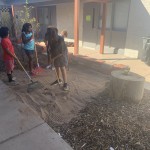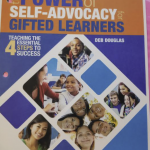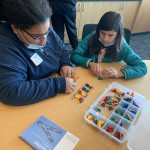In Part 1 of this article, we discussed Dr. Montessori’s theory on the First Plane of Development. In that, we explored the social development of the child between the ages of 0-6 and introduced you to The Casa. The Montessori prepared environment goes beyond meeting the academic needs of the child. In addition to this, the Casa aids in the positive social development of the age 3-6 child. It provides safety for the child, and others to interact with such as other children, animals, nature, artifacts and specially designed materials. Expectations and procedures are clear to the child, aiding him in making appropriate choices. The child is given freedom within limits. While honoring the individuality of the child, this little one also learns that we are to keep in mind what is best for the whole, the overall community.
The multiage groupings of all Montessori classrooms, including the Casa, provides variety in roles, role models, and role modeling. It provides culture diversity and commonality across differences as well. The child is provided opportunities for movement in the body and in the mind. While scientifically developed, the materials in the classroom are limited. They lead the child to think further and beyond them. Independence is encouraged as much as possible and free choice is encouraged. There is mutual respect between the children for each other, respect from the adult to the child, respect from the child to the adult, respect for nature, and a respect for the environment as a whole.
Grace and Courtesy occurs in the classroom and is a direct social learning opportunity for the child. It is used to introduce specific elements of etiquette and social relations based on the culture the child is in. Role play techniques offer opportunities for the child to practice the skills in a specific scenario, with hopes of increasing the likelihood that the skills will be used if encountered in daily life. It is the adult that is the keeper and protector of this environment and all that goes with it.
Up to age 6, society is built up within the child by cohesion, and unconsciously created. The child’s sense of belonging and self-identity with the group cannot be forced upon him. Instead, it happens naturally from within and the child finds cohesion with the group as the child comes to the self-understanding that “ I am a part of the group”. After age 6, the construction of society is consciously created. The child moves from a society in embryo (internal) to a society just born (external). This is done at the conscious level and the child begins to look for organization and leadership, obedience to the herd, and a need to belong.
The child is now in the 2nd plane of development (6-12). This is a period of great stability, consolidation, and calm growth. The child no longer has an absorbent mind, but he is capable of abstractions and strong use of the imagination. Instead of asking “what?”, he now asks “why?”. Socially, he wants to know the undermining reasons for how things operate and the reasons for this. Exploration, research, and inquiry are important. Social skills can be more difficult to learn and may require conscious practice with repetition. Yet, because their minds can think abstractly, they are able to learn through imagination. Real life information and self-determination is supported through Going Outs, were the child is encouraged to secure additional knowledge, information, experiences and resources related to his personal learning needs outside of the classroom. Going Outs put him in direct relationship with the community and, now because of technology, the world.
The third (ages 12 – 18: adolescence) and fourth (ages 18 -24: young adulthood) planes of development are preparations for entry into and establishment in adulthood. The third plane child experiences puberty, benefits from restorative nurturing care, and takes on an interest in practical skills. He is preparing to take on full responsibility for himself and has a desire to know exactly how to do this. For some, this will manifest in trade skill development. For others, it may manifest in practical preparations for college entrance. And for others, it can be both or something all together different. Again, this is highly influenced by culture as the child seeks to see himself more clearly as an active member of his society and culture.
Full exploration is encouraged, as the child may or may not have come to realize his potentialities in a given area. The fourth plane is the official transition into adulthood. This is where the manifestation of all the preparations since birth come to head. The child (young adult) is striving to arrive upon autonomy and independence. This may be challenging within his culture, as many western cultures do not provide full opportunities for the fourth plane child to do so. Yet, this does not prevent the child from asking the question “What will my contributing role in society be?”. Much of this depends on what the child has within himself to offer. Therefore, we can see the importance of our role to assist the child throughout his life in reaching his highest potential. In doing so, we are helping the child become the man, a positive contributing member of his society.








